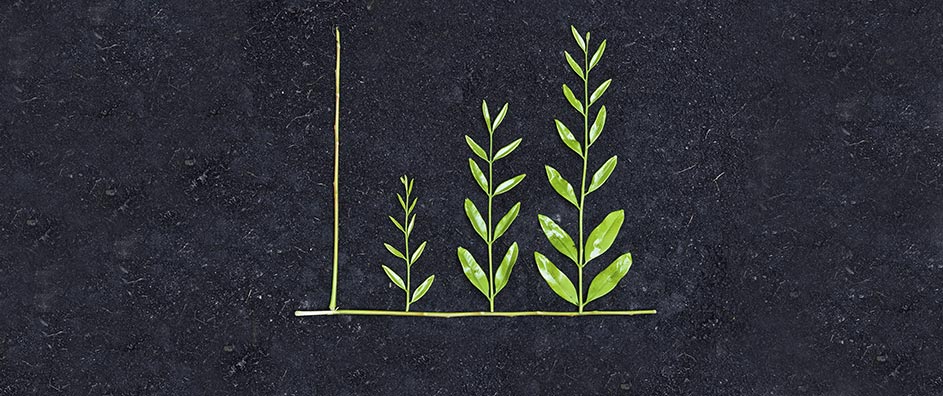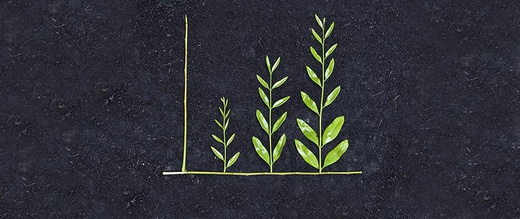The views expressed in our content reflect individual perspectives and do not represent the authoritative views of the Baha'i Faith.
 This is Part 2 of Climate Adaptation: A Hunger for Consensus :
This is Part 2 of Climate Adaptation: A Hunger for Consensus :
Hunger may become the overriding value that drives us toward consensus on climate change.
Families everywhere must put food and water on the table. In the US, the California drought has threatened America’s production of the many fruits and vegetables as fields lay fallow. Water loss has brought economic erosion, loss of output, and the promise of higher prices for those who can least afford it. In addition, the US exports more than 30% of all wheat, corn and rice around the world. Even where drought conditions have not been so extreme, warmer temperatures can make many crops grow more quickly. Faster growth reduces the amount of time the seeds have to grow and mature, thus limiting the yield from a given acreage (based on a 2009 report by the United States Global Change Research Program).
In the coming years, Sub-Saharan Africa will see its bean yields decrease by 68%, and South Africa will lose up to 25% of its dairy yield, while fish-producing countries will suffer job and food losses of 21-50%. All the while, Africa’s population will double to 2.4 billion, based on the Intergovernmental Panel on Climate Change’s March 2014 report.
No matter where you look, personal experience will increasingly underscore the relationship between slowly rising temperatures and water issues. Droughts, wildfires, storms, floods and typhoons all play a role. Those water issues will, ultimately, exacerbate our food shortages.
Worldwide, agriculture claims 70% of freshwater use. In Sub-Saharan Africa, 94% of that water comes from rainwater, and in Asia, 66% of farms are rain-fed. Water storage systems in the US provide far more gallons per person, even under drought conditions, than in Africa and Asia, so the West can generally respond to crises more easily and effectively than can developing nations, by rationing and storing water. If Western farmers have begun to panic, imagine the plight of subsistence farmers in developing nations.
For the past several years, scientists and social scientists have urged rapid investment in adaptations to climate change. The first in the triage of investments are water storage projects, from small rainwater tanks, watershed protections, well-forested riverbanks to reduce erosion, wetlands that slow floodwaters, and dams or water systems that recharge groundwater aquifers so the soil can hold more water. Small farmers in Africa and India have learned to recharge groundwater to better irrigate their crops and improve their economies. Their adaptations exemplify communities’ resilient adaptations to a problem that has passed the prevention stage.
I remember a time when students in the U.S. tried to recommend drought-free plants for a class in Kenya, in a wisdom exchange project. The American students were humbled by the photos of terraced African hillsides and six-foot cassava plants they received in return.
“I am I plus my surroundings, and if I do not preserve the latter, I do not preserve myself,” wrote Jose Ortegy y Gasset, in Meditations on Quixote (1883-1995). The West, like other regions, now faces climate change-related drought, water shortage and the ultimate food shortages that could result. A look at the risks and potential solutions to climate change as it affects drought must acknowledge that all life suffers from ripples in nature’s delicate climactic balance.
Compassion for the need to preserve human life and the wellbeing of the human family must at last serve as a bigger motivation than falling on one side or the other of a political debate. The ancient wisdom to act and the access to resources may come from two different corners, but the will to act must come from a shared value system. It boils down to willingness to see the relationship of the climate to the common good, which hinges on the belief that we are truly one human family, valued for our diverse capacities and unifying experiences — among them both personal suffering and compassion for others. This essential realization – the oneness of humanity – asks that we recognize our common essence and work to foster a unified human species.
More than a century ago, the Baha’i Writings stated:
…What an extraordinary situation now obtains, when no one, hearing a claim advanced, asks himself what the speaker’s real motive might be, and what selfish purpose he might not have hidden behind the mask of words. You find, for example, that an individual seeking to further his own petty and personal concerns, will block the advancement of an entire people. To turn his own water mill, he will let the farms and fields of all the others parch and wither.
Again, is there any deed in the world that would be nobler than service to the common good? The best of men are those who serve the people; the worst of men are those who harm the people. – Abdu’l-Baha, The Secret of Divine Civilization, p. 103.
Regardless of the strategies, then, let us strive for the clear goal of consensus for the common good.
Read the previous article: Climate Adaptation: A Hunger for Consensus


















Comments
Sign in or create an account
Continue with Facebookor